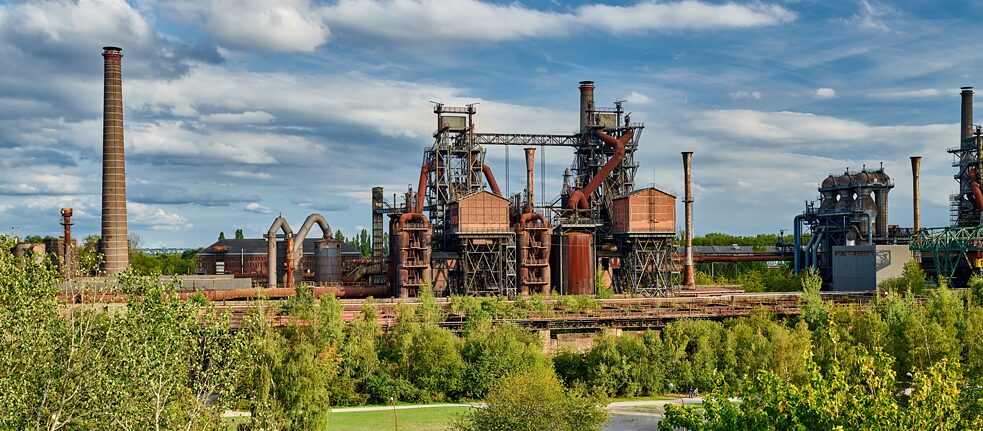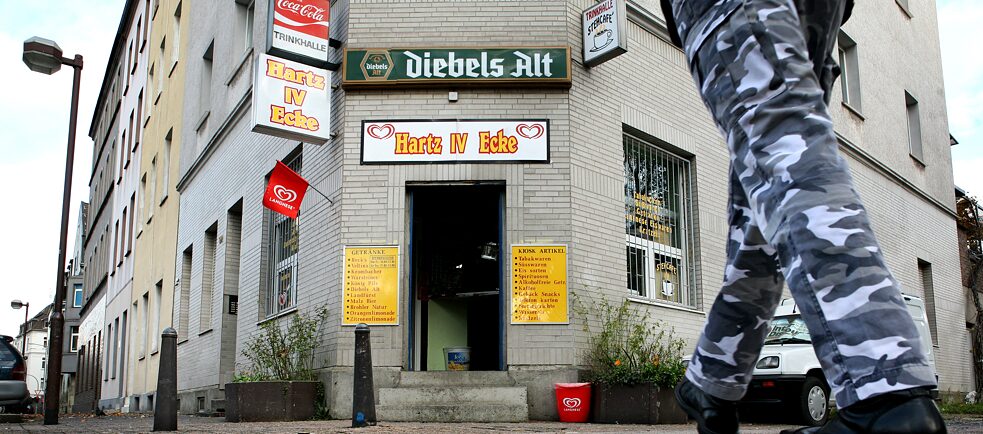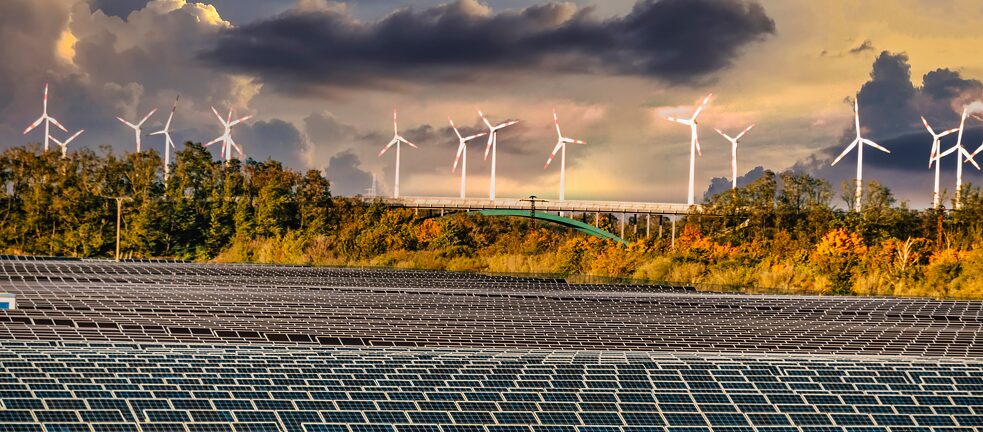Economy
A Wasteland Where People Feel Left Behind And Ignored

Structural weaknesses in rural areas are often overlooked. Economic development scarcely happens there, and they are rarely in the spotlight for their climate protection measures either. Researchers went to these regions to investigate how the situation could be improved.
Located away from the urban areas where life is pulsing and hip start-ups are inventing technologies for the future: the charisma of the city centres doesn’t extend as far as these wastelands, which are often in rural locations. People in these structurally weak regions have long been considered losers in terms of economic development. With the imminent transformation into a climate-neutral society, they are worried about being left behind even more: “Decisions are made without us anyway,” says a woman from Bochum, “we don’t have any say.”
This feeling of powerlessness is widespread in the affected regions, as shown in a 2022 survey published jointly by the Friedrich Ebert Foundation and Das Progressive Zentrum, an independent think tank in Berlin. The researchers conducted more than 200 door-to-door interviews in four structurally weak areas, systematically questioning people whose voices are otherwise seldom heard – in Bitterfeld-Wolfen where there used to be a chemical plant, the former coal-mining centres of Duisburg and Bochum, the region of Saarbrücken, and on the East German coast in Greifswald, Western Pomerania.
A call for redistribution
“With respect to controlling the climate crisis, many people in structurally weak regions feel left behind,” is the main conclusion drawn by the scientists. Although the people questioned recognise global warming and environmental problems as one of the major challenges facing humanity, development in their own community is more important to them. Here they are concerned about a downward spiral of outward migration, increasing poverty and the loss of infrastructure such as good transport links, or culture and leisure facilities. “It’s always the ‘man in the street’ who ends up paying – for climate change as well as for petrol prices,” complains a woman from Bitterfeld.“People are not simply expecting climate change to be controlled,” the researchers observe, “this control also needs to be socially acceptable.” For these people, social hardship is right at the top of the agenda. The uneven distribution of income and assets bothers the survey participants. They are afraid of becoming dependent on social security, or needing a second job to survive. The chasm between top earners and people just about making ends meet on minimum wage is a source of worry. As a consequence, the majority of those interviewed are calling for increased redistribution of wealth. Climate protection is seen as a further threat, not as an opportunity.
 The local restaurant trade in Duisburg is adapting to reality: because of the large number of regulars drawing the Hartz IV unemployment benefit, the owner of this kiosk in Duisburg’s Hochfeld district decided to rename his refreshment bar “Hartz IV Ecke” (Hartz IV Corner).
| Photo (detail): © picture alliance/dpa/Julian Stratenschulte
The local restaurant trade in Duisburg is adapting to reality: because of the large number of regulars drawing the Hartz IV unemployment benefit, the owner of this kiosk in Duisburg’s Hochfeld district decided to rename his refreshment bar “Hartz IV Ecke” (Hartz IV Corner).
| Photo (detail): © picture alliance/dpa/Julian Stratenschulte
Shops are closing, people are moving away
The worries may also arise from the fact that people have already faced a certain amount of disruption. The regions surveyed have all lost their economic basis at one time, in the case of Saarbrücken for example it was the formerly thriving coal and steel industry. Looking to the future, many of the residents now fear a further decline. A quote from the survey describes this downward spiral: “Shops close down, people move, no medical specialists are available locally, there are potholes in the road.” Locals are not so much concerned about themselves as about the prospects for their region. “A lack of perspective is rife, especially in eastern parts of Germany: older people are resigned to the situation to a certain extent,” says a young man from Wollgast, “while the younger generation is moving away.”
These fears go hand-in-hand with a lack of trust in politicians and parties. There is a predominant opinion that the “big shots” are incapable. Furthermore, almost one in two of those surveyed does not consider that anyone within the political institutions is looking after the needs of the public. What they say also suggests that populists could gain ground as a result. At the same time, a large majority considers the democratic system per se to be strong.
There are ways to counteract the decline
The institutes have derived recommendations from the interviews and supporting research regarding how this large-scale transformation could work in structurally weak areas. “Money, the ability to set the agenda and voice” was the banner under which the scientists implemented their programme.
 In structurally weak regions there is often plenty of space, which can be used for energy generation, like this example in Bitterfeld-Wolfen. The authors of the study are calling for the profits to be channelled back into the region.
| Photo (detail): © picture alliance/Global Travel Images
For instance the intention is for the state to provide sizeable sums for investment in a local energy economy. Since there is usually lots of space, energy generation facilities could be built here. Profits from trading in this energy would stay in the region and in turn facilitate investment in education, local transport and social infrastructure. To achieve this, researchers propose paying aid directly to the locals, for instance by funding the costs of modernising their homes, or helping them switch to electric vehicles. Something else that should be mentioned in this context is that the subject of financial support is very much a key factor for central government – in 2020 alone 1.7 billion euros were allocated to funding structurally weak regions. The long-term goal is to create equal living conditions throughout the Federal Republic. Admittedly there is still a while to go before this package of measures, the “Federal Funding System for Structural Development Regions”, will have an impact.
In structurally weak regions there is often plenty of space, which can be used for energy generation, like this example in Bitterfeld-Wolfen. The authors of the study are calling for the profits to be channelled back into the region.
| Photo (detail): © picture alliance/Global Travel Images
For instance the intention is for the state to provide sizeable sums for investment in a local energy economy. Since there is usually lots of space, energy generation facilities could be built here. Profits from trading in this energy would stay in the region and in turn facilitate investment in education, local transport and social infrastructure. To achieve this, researchers propose paying aid directly to the locals, for instance by funding the costs of modernising their homes, or helping them switch to electric vehicles. Something else that should be mentioned in this context is that the subject of financial support is very much a key factor for central government – in 2020 alone 1.7 billion euros were allocated to funding structurally weak regions. The long-term goal is to create equal living conditions throughout the Federal Republic. Admittedly there is still a while to go before this package of measures, the “Federal Funding System for Structural Development Regions”, will have an impact.
Alongside financial support, the authors hope to influence the development of the regions more. For instance, local residents across the board are to be given a voice, also they want to persuade people to trust the politicians. The institutes are calling for people to be heard more, and for them to be given more respect and appreciation. Politicians usually only made a brief appearance before the elections and after that you never saw hide nor hair of them, criticised one of the respondents: “I do realise that it isn’t always possible to put things into practice immediately, but it’s important just to listen.”
“Disregarded”
For the “Disregarded” study, more than 200 door-to-door interviews in four structurally weak areas of West and East Germany were conducted in 2021. 54 per cent of those questioned stated “feeling left behind” as their chief concern for the future with regard to their region. They named social challenges as well as environmental and climate protection, followed by Germany’s economic future, as the greatest challenges of the future. They would like to see better infrastructure, culture and leisure facilities and more collaboration.
Comments
Comment